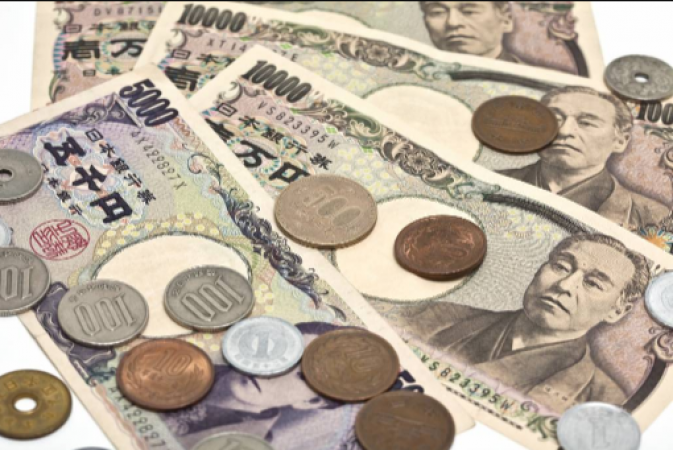
Tokyo: The trajectory of Japan's economic growth has hit a cautious note, with the annual growth rate tapering to a modest 0.5% in the second quarter of 2023.
This downtrend marks a departure from the 1.7% growth recorded in the preceding quarter, underscoring an intricate interplay of multifaceted factors shaping the nation's economic landscape.
A pivotal driver in this deceleration is the erosion of the yen's strength against the US dollar. In recent months, the yen has experienced a significant weakening, rendering Japanese exports relatively more expensive and imports comparatively cheaper.
Also Read: US Signals Implicit Recognition of Taiwan Sovereignty with Landmark Weapon Sale
This shift has exerted pressure on Japanese businesses and engendered a climate of sluggish economic growth, reinforcing the paramount influence of currency dynamics on economic performance.
Furthermore, the persistent grip of the COVID-19 pandemic continues to cast a shadow over Japan's economic resurgence. The pandemic's tentacles extend across multiple sectors, with a particularly pronounced impact on the service industry.
The curtailment of tourism and business travel has dealt a blow to this sector, stifling the once-thriving movement of people and capital that underpinned economic vitality.
In tandem with these challenges, the Japanese government's cautious approach to fiscal stimulus measures has contributed to the economic slowdown. A hesitance to implement expansive fiscal policies, such as increased government spending or tax cuts, has led to an environment of restrained growth.
However, amidst the challenges, promising glimmers illuminate the horizon. The unemployment rate remains at a commendably low level, and a gradual uptick in wages augurs well for consumer spending—a pivotal driver constituting approximately 60% of Japan's economy.
The tapestry that unravels encompasses a nuanced narrative. It is incumbent upon observers to discern the complexity inherent within the Japanese economic landscape—a landscape that offers both challenges and opportunities.
The impact of the weakening yen transcends the realms of economics, reverberating in the corridors of global trade dynamics. The devaluation of the yen has unveiled a dichotomous effect on Japanese exports and imports, influencing the competitive edge of businesses in international markets.
Also Read: EU's Borrell Urges Heightened Training Efforts for Ukrainian Conscripts in Face of Russian Conflict
The consequent vulnerability of Japanese industries lies in stark contrast to the benefits reaped by domestic consumers, who find themselves beneficiaries of cheaper imports.
The enduring grip of the COVID-19 pandemic compounds the multifaceted challenges. With the duality of domestic and international implications, the curtailment of tourism and business travel not only constrains economic sectors but also stifles opportunities for international collaboration and exchange.
The disruption in supply chains—another offshoot of the pandemic—continues to pose intricate challenges, affecting the availability of essential goods and materials.
Moreover, the Japanese government's fiscal stance bears noteworthy influence. A calibrated approach to fiscal stimulus has implications for economic growth, as the government grapples with the delicate balance between fostering growth and maintaining fiscal prudence.
Looking forward, an array of variables stands to shape the trajectory of Japan's GDP growth:
Yen Movement: The direction of the yen will be instrumental in determining Japan's economic performance. A continued weakening of the yen may exacerbate challenges for exporters while conferring advantages to consumers.
COVID-19 Trajectory: The pandemic's trajectory will undoubtedly wield a profound impact. A resurgence could trigger restrictions that further stifle economic activity.
Fiscal Policy Pivot: The Japanese government's response through fiscal stimulus measures holds the potential to recalibrate the economic landscape.
In the broader context, the Japanese economic growth slowdown underscores the delicate nature of economic revival in a global environment characterized by uncertainty. The intertwining of internal and external dynamics illustrates the intricate dance that shapes the nation's economic trajectory.
As Japan navigates this intricate terrain, it underscores the role of policy measures in fostering economic resilience and resurgence. The balance between bolstering consumer confidence, encouraging investment, and safeguarding fiscal stability represents a labyrinthine challenge.
Also Read: Tragedy Strikes: Deadly Building Fire Claims Lives in Johannesburg, Igniting Fire Safety Concerns
In the ongoing narrative, Japan's economic landscape remains an evolving tapestry, wherein each thread contributes to the broader narrative.
The challenges are manifold, but opportunities for revitalization and adaptation lie in innovative policy measures, resolute consumer engagement, and a cautious eye on the global pulse.